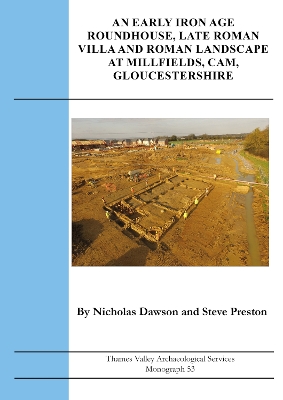Fieldwork revealed details of a wide landscape of Roman fields and enclosures laid out around the junction of two droveways and probably spanning the entire Roman period. An early Iron Age roundhouse radiocarbon dated to 653-542 cal BC had previously occupied the same area that was to be close to the heart of the Roman enclosures. However, the chief interest of the site lies in the late Roman period (later 3rd to 4th century) when a rectangular villa was constructed on the terrace edge overlooking the river Cam. Initially of just three rooms it was soon expanded to six and the southern end was then subdivided to form a bath suite. Although of very simple plan form, the building was of some sophistication with very substantial deep stone foundations carrying stone walls, an elaborate hypocaust, decoratively painted wall plaster, stone roof, and furniture including some with decorative stone tops. Other signs of obvious wealth, however, are lacking. The villa seems to have been demolished by the end of the 4th century, possibly earlier.
The faunal component of the economy comprised a typical dominance of cattle followed by sheep/goat and pig with few exotic species, and the proportions of which changed little through the life of the settlement. Evidence for arable production was again typically modest, with no structures such as corn driers present, though millstones imply large scale production of flour.
- ISBN13 9781911228752
- Publish Date 30 June 2024
- Publish Status Active
- Publish Country GB
- Imprint Thames Valley Archaelogical Services Ltd
- Format Paperback
- Pages 134
- Language English
